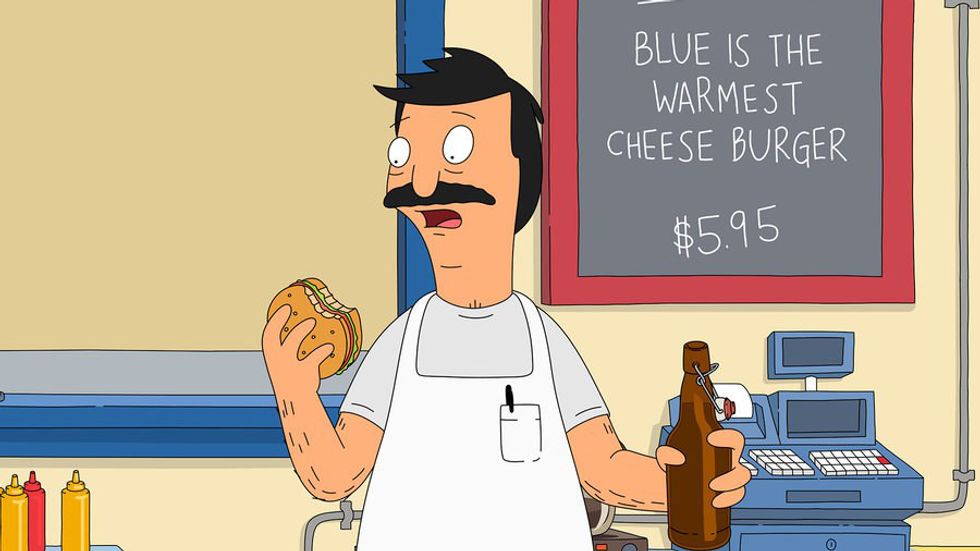Imagine food as a fantastic source of entertainment, no longer fueling but filling. Imagine a country where junk food waits around every corner at the nearest fast food restaurant. Imagine a world full of bottomless, all you can eat GMOs. GMOs, also known as Genetically Modified Organisms, are plants and animals created by the alteration of genetic material or genetic engineering. By gene splicing techniques performed in labs, the DNA of organisms is then altered. This results in unstable combinations of organisms that don't naturally occur in nature. Originating in the 1980s, GMOs were first introduced after tests on lab rats. Within several days of being fed corn with this altered DNA, the rats grew tumors in their digestive tracks, grew obese and died. Tester, the man who conducted these staggering results and attempted to stop the GMO production, was ultimately stripped of his title, lost his career, and hid all evidence of GMOs destruction.
Have you ever wondered why there aren’t any studies or scientific evidence proving the benefits of GMOs? Or, if the food industry is so proud of GMOs, why don’t they label them and give us our right to know what’s in our food? While the European Union and many developed nations require GMOs to be labeled, the USA has no such law. Why? Because the food industry has become a business composed of thriving corporations that dominate our government.
One such example is Monsanto, a company that used to be known as a chemical company but is now the world’s largest agricultural seed company, producing only GMO seeds. Quoted from an interview in The New York Times, Phil Angell, Monsanto’s director of corporate communications, stated: “Monsanto should not have to vouchsafe the safety of the Biotech food.” Yet, in a Statement of Food Policy, the FDA asserted: “Ultimately, it is the food producer who is responsible for assuring safety.” And what resulted from this ironic miscommunication? “In April 2011, the FDA moved to allow Monsanto to perform their own environmental impact study on the very GMOs it has been responsible for developing.” Also on that note, “Michael Taylor, former Monsanto Vice President, is the FDA Deputy Commissioner for Foods. Rajiv Shah, a Monsanto partner and stockholder, served as Obama’s USDA Under-Secretary for Research Education and Economics and is currently the head of United States Agency for International Development. Elena Kagan, who took Monsanto’s side against organic farmers in the Roundup Ready alfalfa case, is an Associate Justice of the Supreme Court.”
Despite these concerning facts, these big food industries have scared us into believing we would all starve if we didn’t grow GMOs. In reality, we are wasting 30 to 40 percent of our food each year, according to both the USDA and the United Nations. In the USA alone, food analyst and Ted Talk speaker Robyn O’Brien says that we waste and toss out almost 40 percent of our food, racking up $165 billion in losses each year. Furthermore, according to Businessweek, “the issue isn’t so much that we can’t grow enough. Rather, existing food supplies are so poorly distributed that those hundreds of millions have too little for their own health, while 2 billion-plus have too much.”
GMOs are wasteful and poorly impacting not only our health but also the healthy of our environment. For thousands of years, farmers maintained genetic diversity by saving their own seeds, but today many farmers buy the same seeds from the GMO manufactures. Wide spread monocultures of the same GMO crops, also known as transgenics, could be a disaster waiting to happen. The same gene is being used almost worldwide. If something should happen, if one of those families should develop susceptibility to a new disease, the entire agricultural seed business could be wiped out. Without diversity, we face potential starvation.
Monsanto has even made advancements such as genetically engineering seeds that are not only resistant toward bugs but also to their own roundup glyphosate pesticide (which contains a chemical known to directly cause cancer) simply to prevent weeds from growing. As a result of these foreign GMO seeds, the soil produces roundup resistant weeds while also killing off bees, our essential pollinators, and attracting infestations of resistant bugs that are dangerous to us. And so this cycle continues as they attempt to fix their previous mistake by forming new GMO seeds resistant to more potent and expensive chemicals that are then sprayed all over our food and land.
What does mass production of GMOs mean for the American people? Because GMOs contain altered genetic material, our bodies view them as foreign invaders, which triggers anti-inflammatory responses in order to flush the unknown proteins out of the body. With this constant buildup of foreign gunk, GMOs are detrimental to the environment as well as our health. GMOs are proven to cause obesity and diseases such as cancer, infertility and malfunctions in children, including autism and other disorders.
Imagine food filling you only to leave you feeling empty. Imagine being disconnected with mother nature, incapable of utilizing all that she has to offer. Perhaps you need not imagine. Consider the impact GMO food has not only on your own body but also on future generations. What will happen if we stand back and allow the food industry to continually take away our rights? Today I challenge all of you not to remain ignorant but to inform yourselves so that together we can fight back for healthier and more affordable options for all.


































